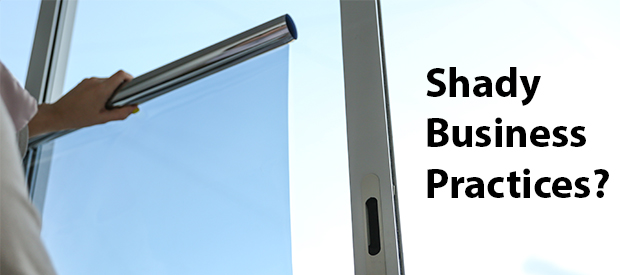Franchise 101: A Tinted FDD; and Tea Up Your Business Expansion

Franchisor 101: A Tinted FDD
A Tennessee federal district court granted a franchisee’s request for a preliminary injunction to prevent the franchisor from enforcing noncompete restrictions under the franchise agreement while the franchisee litigated its fraud claims against the franchisor.
Frost Shades Franchising, LLC, the franchisor of a window tinting and frosting business, granted a franchise for the operation of a South Carolina location. Shortly after entering into the franchise agreement, the parties’ relationship broke down. The franchisee learned that some of the franchisor’s members were involved in litigation not disclosed in the Frost Shades’ Franchise Disclosure Document (FDD) provided prior to entering the franchise agreement.
The franchisee alleged Frost Shades fraudulently induced the franchisee to enter into a franchise agreement by failing to disclose material litigation. Though the litigation was not against Frost Shades, Frost Shades’ members were personally named with a different franchisor in proceedings filed by franchise enforcement divisions in Minnesota and New York. In Minnesota, the members entered a consent order, in which they acknowledged they violated the Minnesota Franchise Act agreed to pay a civil penalty, and not sell franchises in Minnesota until the franchisor is registered. In New York, one of the individual members had not disclosed a felony conviction for credit card fraud.
The franchisee claimed the prior enforcement matters were required to be disclosed in Frost Shades’ FDD, but were not. As part of the litigation, the franchisee sought a preliminary injunction to enjoin Frost Shades’ enforcement of noncompete provisions in the franchise agreement pending resolution of the fraud claims. Frost Shades moved to dismiss the complaint and compel arbitration.
The court concluded the franchisee was likely to succeed on the merits of its fraud claims, authorizing the injunctive relief sought. Frost Shades admitted it inadvertently omitted from the FDD one of the cases that was still pending at the time the franchisee executed the franchise agreement. However, Frost Shades argued the error was negligible because that litigation was filed after the two members sold their ownership interests in the other franchisor. The court held that the members’ sale of their ownership interests did not excuse the Frost Shades’ failure to disclose the litigation against the two members.
The court likewise rejected Frost Shades’ argument that the franchisee was unlikely to establish that the FDD contained materially false or misleading statements on which the franchisee reasonably relied to his detriment. The court found sufficient the franchisee’s claim that, had the litigation been disclosed, the franchisee would not have entered into the franchise agreement.
FDDs must be updated annually. Franchisors should work with franchise counsel to investigate and evaluate past and pending litigation to determine whether, and the manner in which, proceedings against the franchisor or its principals are properly disclosed.
Lunt v. Frost Shades Franchising, LLC 2023 U.S. Dist. LEXIS 85389 (M.D. Tenn., May 16, 2023)

Franchisee 101: Tea Up Your Business Expansion
A California appellate court affirmed a trial court’s denial of more than $4 million in damages for “reverse royalties” arising from a franchisee’s purchase of a boba franchise with an exclusive 10-mile territory.
The franchisee purchased an existing It’s Boba Time franchise. The purchase agreement included an exclusive territory provision, prohibiting the opening of another It’s Boba Time within 10-miles of the franchise. After the sale, additional It’s Boba Time stores were opened within the franchisee’s exclusive territory. The franchisee filed suit against franchisor Boba Time, Inc. for violating the purchase agreement’s exclusive territory provision.
In a bench trial, the trial court found in favor of the franchisee and awarded the franchisee lost profits. The trial court denied the franchisee’s request for “reverse royalties,” finding the franchisee’s evidence was insufficient to establish the reverse royalties he claimed he would have received had Boba Time honored the franchisee’s exclusive territory rights. The trial court found the franchisee had not established the ability to operate additional franchises or that such operations would be profitable because the expert testimony in support of the franchisee’s reverse royalties theory was too speculative and unsupported. The franchisee appealed.
The appellate court affirmed the trial court’s denial of reverse royalty damages. The appellate court rejected the franchisee’s arguments that (1) the purchase agreement did not require that he be able to open other franchises, and (2) the trial court erred by failing to award any damages for lost value of the exclusive territory. The franchisee contended the evidence supported his expert’s reverse royalty valuation and Boba Time did not dispute that valuation since Boba Time presented no alternate valuation.
Though the franchisee established rights to an exclusive territory, the appellate court agreed with the trial court that the reverse royalty valuation was too speculative. The appellate court distinguished between established and unestablished businesses when determining whether to award lost anticipated profits. Lost anticipated profits for an unestablished business are not recoverable as too speculative. Here, the franchisee failed to demonstrate with reasonable certainty the gross sales and viability of current and future It’s Boba Time stores not currently owned or operated by the franchisee. Thus, the franchisee failed to present sufficient evidence that he could have capitalized on his exclusive territory rights by opening additional stores.
When a franchisee seeks to prove lost future profits caused by the franchisor’s breach, franchise counsel and the damages expert must consider a number of factors about the franchisee’s existing and intended businesses to establish that lost profits damages are available, and that the calculation of lost profits is reasonably certain.
Suh v. Un Mi Pak 2024 Cal.App.Unpub. LEXIS 1192 (Feb. 26, 2024)